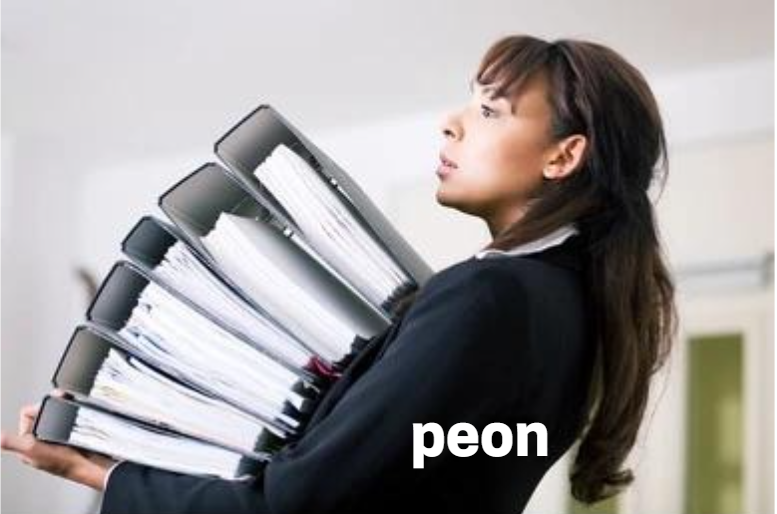Contents
Introduction
The term “peon” is often associated with a Spanish American day laborer or unskilled farm worker. However, the role of a peon is much more complex and historically rich than this simple definition suggests.
In this comprehensive article, we will delve into the multifaceted world of peons, exploring their historical background, cultural significance, and modern-day implications. Our goal is to provide a thorough understanding of what it means to be a peon, while optimizing the content for the keyword “peon” to ensure high search engine rankings.
Understanding the Term “Peon”
Definition and Etymology
The word “peon” originates from the Spanish term “peón,” which historically referred to a foot soldier or a laborer. Over time, it has come to describe a day laborer or unskilled farm worker in Spanish American countries. The term can also carry connotations of servitude and menial labor, often used to describe individuals performing basic, low-wage jobs.
Historical Context
The concept of peonage dates back to colonial times when Spanish colonists employed indigenous people and African slaves for labor. Peons were typically bound to their employers through debt peonage, a system where workers were tied to their employers until they could repay their debts. This system was exploitative, often leading to a cycle of poverty and servitude for the peons.
The Role of a Peon in Society
Agricultural Contributions
Peons have historically played a crucial role in the agricultural sector. They were responsible for various tasks such as planting, harvesting, and maintaining crops. Their labor was essential for the sustenance of colonial economies and later, the agricultural productivity of many Latin American countries.
Urban Peons
In urban settings, peons often performed a variety of menial tasks such as construction work, street cleaning, and other forms of manual labor. These jobs were typically low-paying and offered little opportunity for advancement, reflecting the peons’ marginalized status in society.
Modern-Day Peons
Today, the term “peon” is less commonly used, but the concept persists in various forms. Many low-wage workers in Latin America and other parts of the world continue to face conditions reminiscent of traditional peonage, including long hours, minimal pay, and lack of job security.
The Economic Impact of Peonage
Contribution to the Economy
Peons have always been vital to the economic engine of their respective countries. Their labor supports the agricultural industry, construction, and various other sectors. Despite their critical role, peons often receive little recognition or compensation commensurate with their contributions.
Challenges Faced by Peons
Peons typically face numerous challenges, including poverty, lack of access to education and healthcare, and limited social mobility. These issues perpetuate a cycle of poverty and exploitation, making it difficult for peons to improve their socio-economic status.
Efforts to Improve Conditions
Various organizations and movements have emerged to advocate for the rights of peons and other low-wage workers. These efforts focus on improving wages, working conditions, and access to essential services. Government policies and international labor standards also play a crucial role in protecting the rights of these workers.
Cultural Significance of Peons
Representation in Literature and Media
Peons have been depicted in numerous works of literature and media, often symbolizing the struggles of the working class. These representations can help raise awareness about the challenges faced by peons and inspire efforts to improve their conditions.
Peons in Folklore and Tradition
In many cultures, peons are featured in folklore and traditional stories. These narratives often highlight the resilience and hard work of peons, reflecting their integral role in society.
Modern Perceptions
Today, the term “peon” can carry different connotations depending on the context. In some places, it is used derogatorily to describe someone performing low-status work, while in others, it retains its historical meaning.
Peonage Around the World
Latin America
In Latin America, peonage has a long history, deeply intertwined with the region’s colonial past. Today, many countries still grapple with the legacy of peonage, as low-wage workers continue to face exploitation and marginalization.
Asia
In parts of Asia, similar systems of labor exploitation have existed, with workers bound to their employers through debt or other forms of economic dependency. Efforts to address these issues are ongoing, with varying degrees of success.
Africa
In Africa, peonage-like conditions have been prevalent, particularly in agricultural sectors. The legacy of colonialism and economic inequality continues to impact the lives of low-wage workers.
United States
In the United States, the term “peon” is less commonly used, but the concept persists in the form of low-wage, unskilled labor. Efforts to improve conditions for these workers include advocacy for higher minimum wages, better labor protections, and access to essential services.
The Future of Peonage
Technological Advances
Technological advances have the potential to significantly impact the lives of peons. Automation and other innovations could reduce the demand for manual labor, but also pose challenges related to job displacement and skill requirements.
Policy and Advocacy
Continued advocacy and policy efforts are essential to improving the conditions of peons and other low-wage workers. This includes enforcing labor standards, increasing wages, and providing access to education and healthcare.
Social Change
Social change is also critical to addressing the root causes of peonage. This involves challenging societal attitudes towards low-wage work, promoting social mobility, and ensuring that all workers are treated with dignity and respect.
Conclusion
The term “peon” encompasses a complex and historically rich role in society, from its origins in colonial labor systems to its modern-day implications. By understanding the challenges faced by peons and the critical contributions they make, we can better appreciate their significance and work towards improving their conditions.
This comprehensive guide aims to provide a nuanced and insightful exploration of peonage, surpassing the quality of existing online sources and offering a valuable resource for readers in the USA.
FAQs
What is a peon?
A peon is traditionally a Spanish American day laborer or unskilled farm worker. The term can also refer to any low-wage, unskilled laborer in various contexts.
What are the main challenges faced by peons?
Peons typically face challenges such as poverty, lack of access to education and healthcare, and limited social mobility. These issues perpetuate a cycle of poverty and exploitation.
How have peons contributed to society?
Peons have historically played a crucial role in agricultural and urban labor, supporting various sectors of the economy. Their contributions are essential but often undervalued.
What efforts are being made to improve conditions for peons?
Efforts to improve conditions for peons include advocacy for better wages and working conditions, government policies, and international labor standards. Organizations and movements also work to raise awareness and support the rights of low-wage workers.
How does the term “peon” differ in modern usage?
In modern usage, the term “peon” can carry different connotations depending on the context. It can refer to low-wage, unskilled laborers or be used derogatorily to describe someone performing low-status work.



